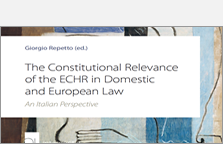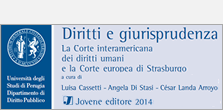|
MINISTERS’ DEPUTIES |
CM Documents |
CM(2024)191-add1final |
12 March 2025 |
|
1522nd meeting, 11 and 12 March 2025 10 Legal questions
10.1 European Committee on Legal Co-operation (CDCJ) Council of Europe Convention for the Protection of the Profession of Lawyer |
EUROPEAN COURT OF HUMAN RIGHTS
FIRST SECTION
CASE OF CANNAVACCIUOLO AND OTHERS v. ITALY
(Applications nos. 51567/14 and 3 others –
see appended list)
JUDGMENT
Art 34 • Victim • Locus standi • Systematic, decade-long, widespread and large-scale pollution phenomenon caused by illegal dumping, burying and/or uncontrolled abandonment of hazardous, special and urban waste, often carried out by criminal organised groups, in parts of the Campania region (“Terra dei Fuochi”) • Applicant associations not “directly affected” by alleged violations stemming from a danger to health due to exposure to the pollution phenomenon • Lack of applicant associations’ standing to act on behalf of their members • Victim status/locus standi criteria set out in Verein KlimaSeniorinnen Schweiz and Others v. Switzerland [GC] not applicable as limited to climate-change context • Absence of any other “special considerations” to grant standing to the applicant associations without a specific authority to do so • Lack of sufficient evidence that certain of the applicants or their relatives lived in areas affected by the pollution phenomenon • Incompatibility ratione personae
Art 2 (substantive) • Positive obligations • Life • Existence of a sufficiently serious, genuine, ascertainable and imminent risk due to the ongoing pollution phenomenon • Existence of a protective duty not negated by the lack of scientific certainty as to the precise effects the pollution might have on an applicant’s health • Art 2 applicable • Authorities’ failure to approach the Terra dei Fuochi problem with the diligence warranted by the situation’s seriousness and to take all steps required to protect the applicants’ lives • Lack of a systematic, coordinated and structured response
Art 46 • Pilot judgment • Detailed general measures indicated by the Court to be implemented within two years from the judgment’s finality to address the Terra dei Fuochi problem • Need for a comprehensive strategy bringing together existing or envisaged measures, an independent monitoring mechanism and a public information platform • Adjournment of similar pending cases not yet notified to the Government
Art 41 • Just satisfaction • Non-pecuniary damage • Reserved
Prepared by the Registry. Does not bind the Court.
Progetto di ricerca “Elderly People, Vulnerability, Inclusive Society. Ageing and Law” (ELVIS)” finanziato dall’Unione Europea – Next Generation EU, PNRR, Missione 4, Componente 2, Investimento 1.1. – Bando PRIN 2022 (D.D. n. 104 del 02/02/2022) (codice id.: 2022YP7KH5 ; CUP: J53D23006050006). Principal Investigator: Luisa Cassetti, Università degli Studi di Perugia – Membri dell’Unità locale UNIPG: S.Angeletti, A.Lanciotti, L.Pesole, R.Manfrellotti ; Responsabili delle altre unità di ricerca locali: Federico G. Pizzetti, Università degli Studi di Milano e Anna Papa, Università Parthenope di Napoli.
Sito web della ricerca: https://www.elvisproject.it/
Il dopo-Brexit e le prospettive dell’allargamento
2 maggio 2024 ore 11:00 Sala Lauree, Dipartimento di Giurisprudenza
Riflessioni a partire dal libro di F. Savastano,
Trasformazioni costituzionali nell’allargamento dell’Unione europea
G. Giappichelli Editore, Torino, 2023
Introduce
Prof.ssa Luisa Cassetti
Università degli Studi di Perugia
Relatore
Dott. Federico Savastano
Università di Roma La Sapienza
Discussant
Prof. Simone Vezzani
Università degli Studi di Perugia
Venerdì 24 novembre 2023 h 16:00
AULA 11 | DIPARTIMENTO DI GIURISPRUDENZA VIA A. PASCOLI | PERUGIA
Prof. Maurizio OLIVIERO – Rettore dell’Università degli Studi di Perugia Ing. Luca PROIETTI – Direttore generale di Arpa Umbria
Prof. Andrea SASSI – Direttore Dipartimento di Giurisprudenza
Prof. Daniele PORENA – Università degli Studi di Perugia – Direttore di CISAFAINTERVENGONO:
Prof. Lucio PEGORARO – Universidad de Salamanca
Prof. Domenico AMIRANTE – Università degli Studi della Campania “Luigi Vanvitelli”
Tutti gli eventi antecedenti a settembre 2016 sono disponibili al seguente link:













